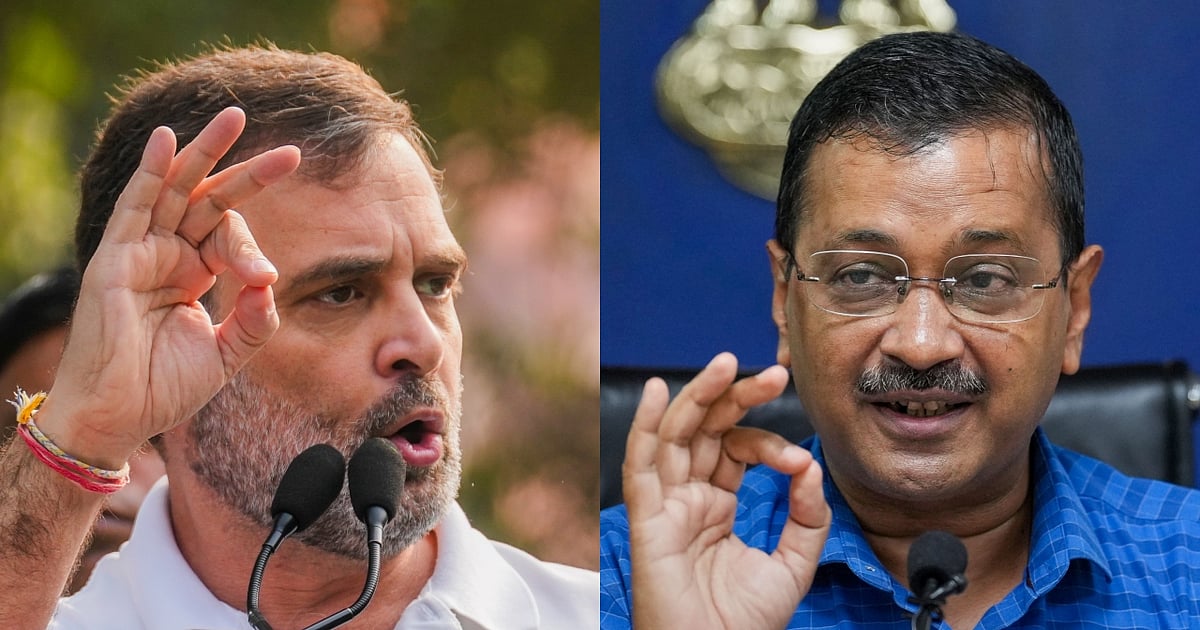 |
|
The recent political sparring between Delhi Chief Minister Arvind Kejriwal and Congress leader Rahul Gandhi highlights a growing rift within the opposition camp. Gandhi's sharp criticism of Kejriwal, accusing him of maintaining a conspicuous silence on crucial issues like the Adani Group controversy and the demand for a caste census, has ignited a fresh round of political debate. Gandhi's assertion that there is 'no difference' between Kejriwal and Prime Minister Narendra Modi in terms of 'propaganda and making false promises' represents a significant escalation of the conflict, suggesting a deep distrust within the opposition's efforts to present a united front against the ruling BJP. This public disagreement underscores the challenges in forging a cohesive anti-BJP alliance ahead of crucial upcoming elections.
Kejriwal's swift rebuttal underscores the sensitivity of these accusations. The Adani issue, involving allegations of corporate malfeasance and potential political influence, has been a major point of contention across the Indian political spectrum. Gandhi's highlighting of Kejriwal's perceived silence on this matter suggests a belief that the AAP leader is prioritizing political expediency over a principled stance against alleged corruption. Similarly, the demand for a nationwide caste census, advocated by various opposition parties as a necessary step towards addressing social inequalities, is another significant policy debate. Gandhi's criticism implies that Kejriwal's inaction on this issue demonstrates a lack of commitment to social justice and further weakens the opposition's collective voice.
The implications of this public feud extend beyond the immediate political squabbling between Kejriwal and Gandhi. It reveals deeper fault lines within the opposition, potentially jeopardizing their ability to effectively challenge the BJP's dominance. A unified opposition front is crucial for creating a credible alternative in the eyes of Indian voters. However, this public disagreement highlights the difficulty in achieving such unity, especially when dealing with strong personalities and divergent political agendas. The contrast in their approaches, whether due to differing political strategies or genuine ideological differences, casts doubt on the cohesiveness of the opposition and raises concerns about their ability to capitalize on public discontent with the ruling government. The coming months will be crucial in observing how these two prominent opposition leaders navigate this conflict and whether they can mend their fractured relationship before the next major electoral contest.
Furthermore, the accusations and counter-accusations raise questions about the broader political landscape in India. The focus on 'propaganda and false promises' points to a growing cynicism amongst the electorate regarding political rhetoric. Both Gandhi and Kejriwal, as leaders of prominent opposition parties, are under immense pressure to demonstrate authenticity and effectiveness. Failure to do so risks alienating voters who are increasingly discerning and demanding greater transparency and accountability from their political leaders. This episode underscores the need for rigorous fact-checking and unbiased reporting to help citizens assess the claims made by politicians on both sides of the political spectrum. The incident also highlights the need for open and transparent governance to build public trust and ensure that critical policy decisions are made in the best interest of the nation.
Looking ahead, the resolution of this conflict will significantly influence the trajectory of Indian politics. Whether Kejriwal and Gandhi can find common ground or continue their public feud will have significant ramifications for the opposition's electoral prospects. The ability of the opposition to present a united and coherent alternative to the ruling BJP is crucial for a healthy democracy. The ongoing tensions between these two leaders serve as a stark reminder of the internal challenges faced by opposition parties in India and the crucial need for reconciliation and collaboration if they are to mount a successful challenge to the current government. The public's perception of this intra-opposition conflict will play a key role in determining the outcome of future elections.
Source: Kejriwal rebuts Rahul Gandhi's allegations on AAP 'staying silent' on Adani, caste census
